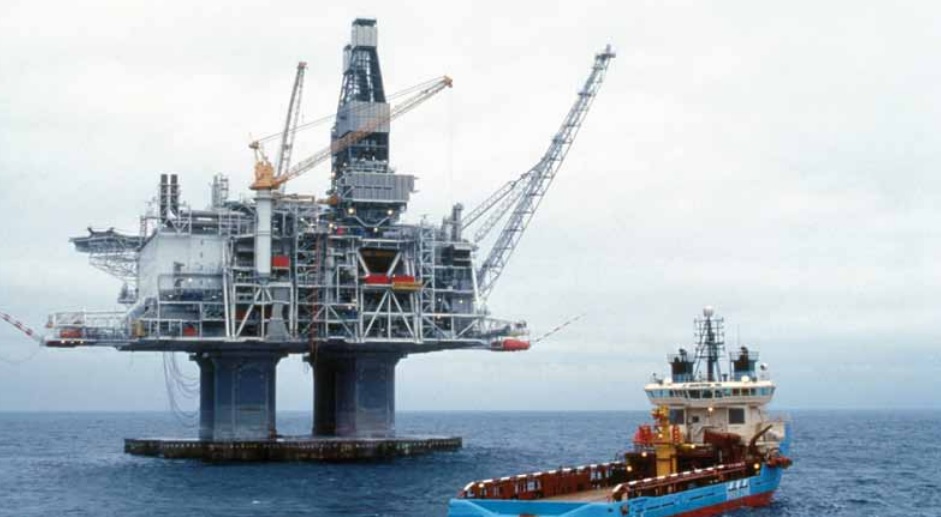
ST. JOHN’S, N.L. – Newfoundland and Labrador Premier Andrew Furey says oil from his province could help countries transition away from Russian fossil fuels, but experts warn it’s not that simple.
Though there may be immediate demand, there’s no way to quickly boost oil production at Newfoundland’s offshore oilfields to meet it, they say. And ultimately, any new oil project must still reckon with climate change and its effects on the global markets.
“There are environmental costs, which can be quite high,” Doug May, an economics professor at Memorial University, said Tuesday in an interview. “So how do you balance one against the other, and whose well-being are we really concerned with?”
On Tuesday, United States President Joe Biden announced his country will ban all Russian oil imports in retaliation for President Vladimir Putin’s assault on Ukraine. The U.S. is one of the top five importers of Russian refined petroleum products, according to data from the Observatory of Economic Complexity, and government figures show the country imported almost 700,000 barrels per day of Russian crude oil and petroleum products in 2021.
Canada has also banned all imports of Russian crude oil, though they were already negligible. Furey told reporters last week that Newfoundland and Labrador’s oil could fill supply gaps as countries turn away from Russian oil.
“I think that’s an important position for Canada to maintain moving forward as the world recognizes that it can’t be relying on a tyrant who controls the energy markets,” Furey said, referring to Putin. He repeated those sentiments a couple of days later, after Ottawa announced it was delaying by 40 days a decision by the environment minister about whether Norwegian oil giant Equinor could develop a new offshore project, called Bay du Nord, located about 500 kilometres off the coast of St. John’s.
“We have the product the world needs now more than ever before,” Furey said in a tweet.
It’s a compelling argument, May said, and it may sway some in Ottawa, but he said it doesn’t erase concerns about climate change.
Newfoundland and Labrador is home to four offshore fields, which together produced roughly 235,500 barrels per day in January. Production peaked in the summer of 2007 at about 430,000 barrels a day, according to regulator reports.
Equinor says there is an estimated 300 million barrels of recoverable oil in the Bay du Nord area, though industry experts say it’s closer to 800 million. The company’s 2018 project description says the field could pump up to 188,000 barrels a day. Production won’t begin until at least 2025, the company’s website says.
Meanwhile, Cenovus — formerly Husky Energy — is still deciding if it will continue work halted in 2020 to extend another offshore field, called White Rose. The project located 350 kilometres off the east coast of Newfoundland could produce up to 75,000 barrels of oil per day.
A Cenovus spokeswoman said Tuesday a decision is expected later this year. Colleen McConnell wouldn’t say, however, if the sanctions on Russian petroleum are influencing deliberations.
Reserves in the Hibernia and White Rose fields are depleting, while operations at the Suncor-owned Terra Nova oilfield have been suspended while its production vessel is refitted in Spain. A Suncor spokeswoman said on Wednesday production should resume before the end of the year.
“There’s a mismatch there between the timelines of those projects and the supply gap that we’re seeing in the market,” said Sara Hastings-Simon, an assistant professor of physics at the University of Calgary, who sits on the board of the Pembina Institute, a Canadian energy think tank.
In the meantime, the transition from Russian oil could also accelerate a shift away from all fossil fuels, Hastings-Simon said. Spiking oil and gas prices, for example, could drive consumers to buy electric vehicles or change the way they heat their homes, she said.
There’s also a growing sense that people have an individual responsibility to help ease demand on Russian oil by reducing their own consumption, she added. For example, the International Energy Agency is encouraging European Union residents to use less natural gas, as about 40 per cent of their supply comes from Russia. The agency is expected to release a guide next week on using less oil, she said.
The EU also released a plan Monday to end its reliance on Russian fossil fuels, which includes sweeping commitments to develop renewable alternatives.
May said offshore oil projects are increasingly risky as the world tries to wean itself off oil — no matter where it’s from — in response to climate change. They’re expensive, they’re long-term and they require a few years of development before they even start producing, he said.
Even if Ottawa approves Bay du Nord, the company will still have to decide if all the risks are worth it, May added. Equinor’s decision announced Feb. 28 to halt all new investments in Russia and start exiting its existing ventures in the country will likely add to the complications, he said.